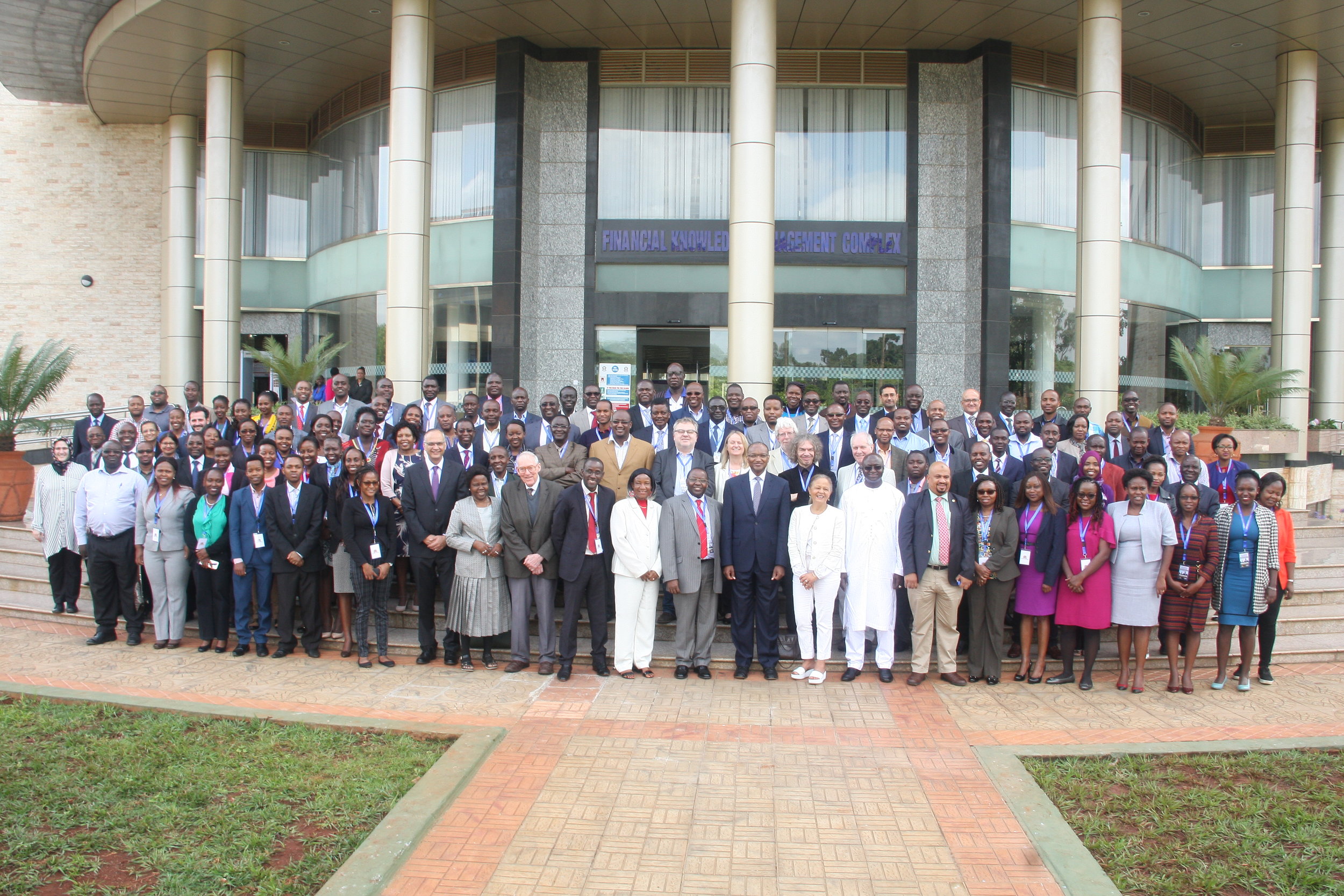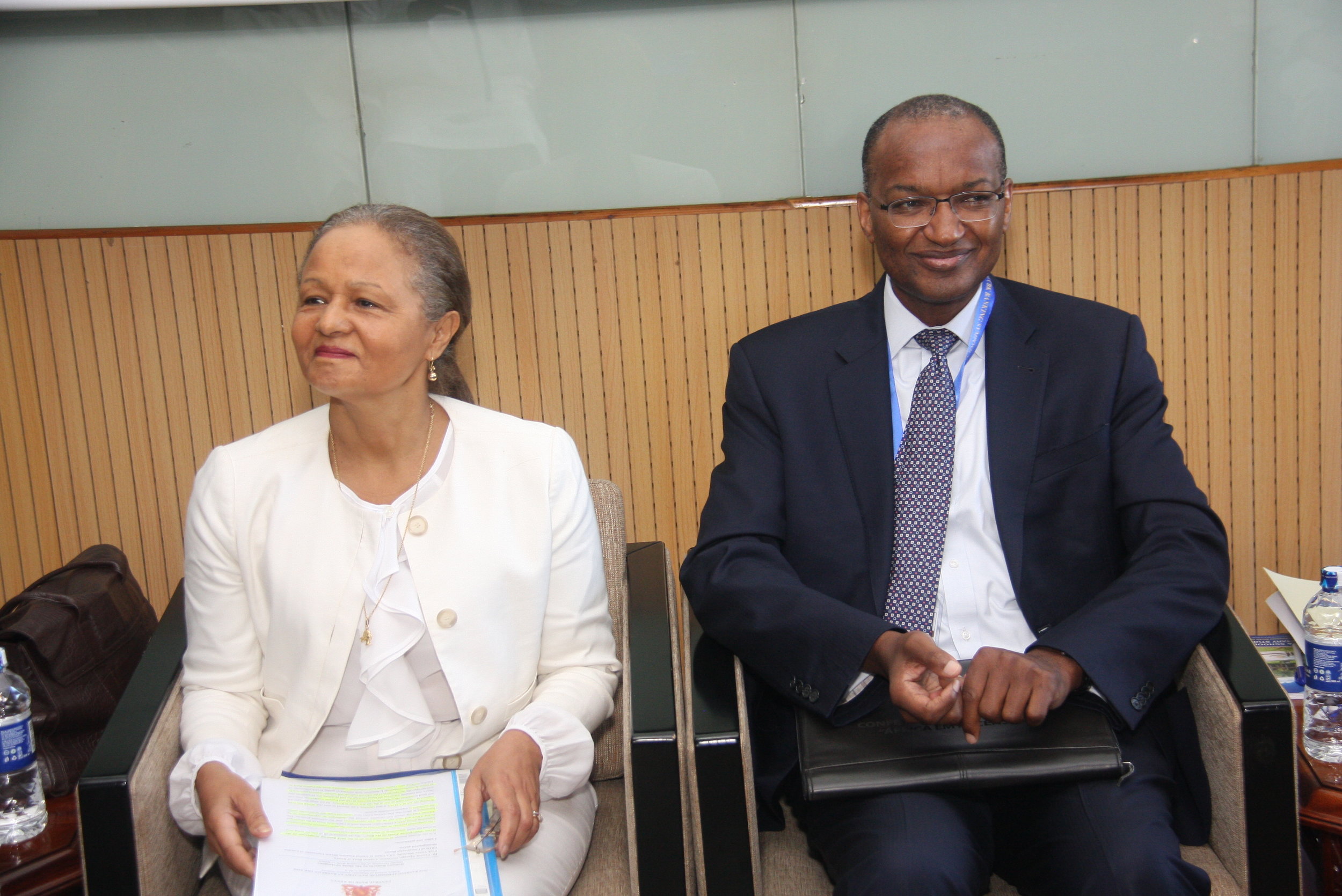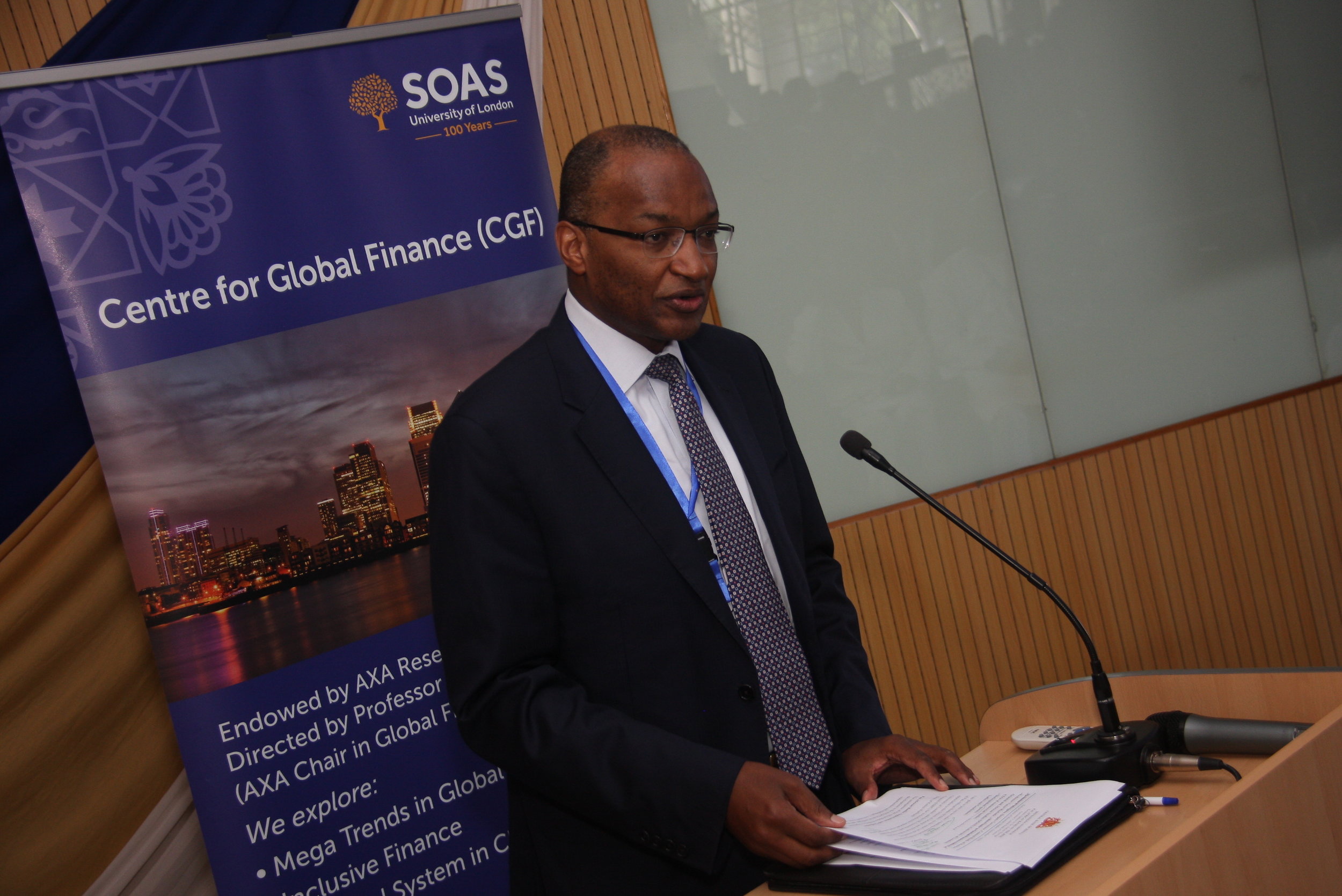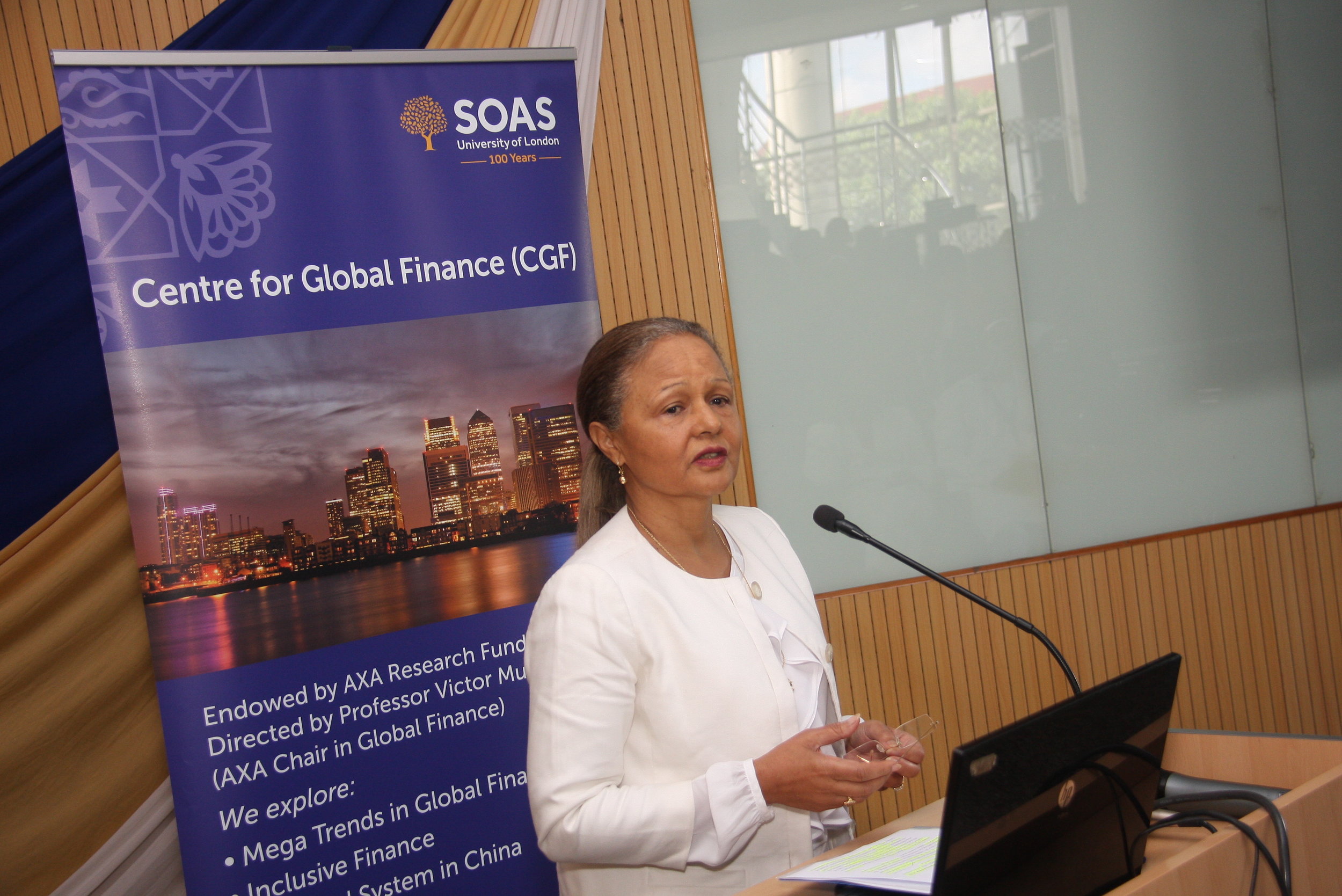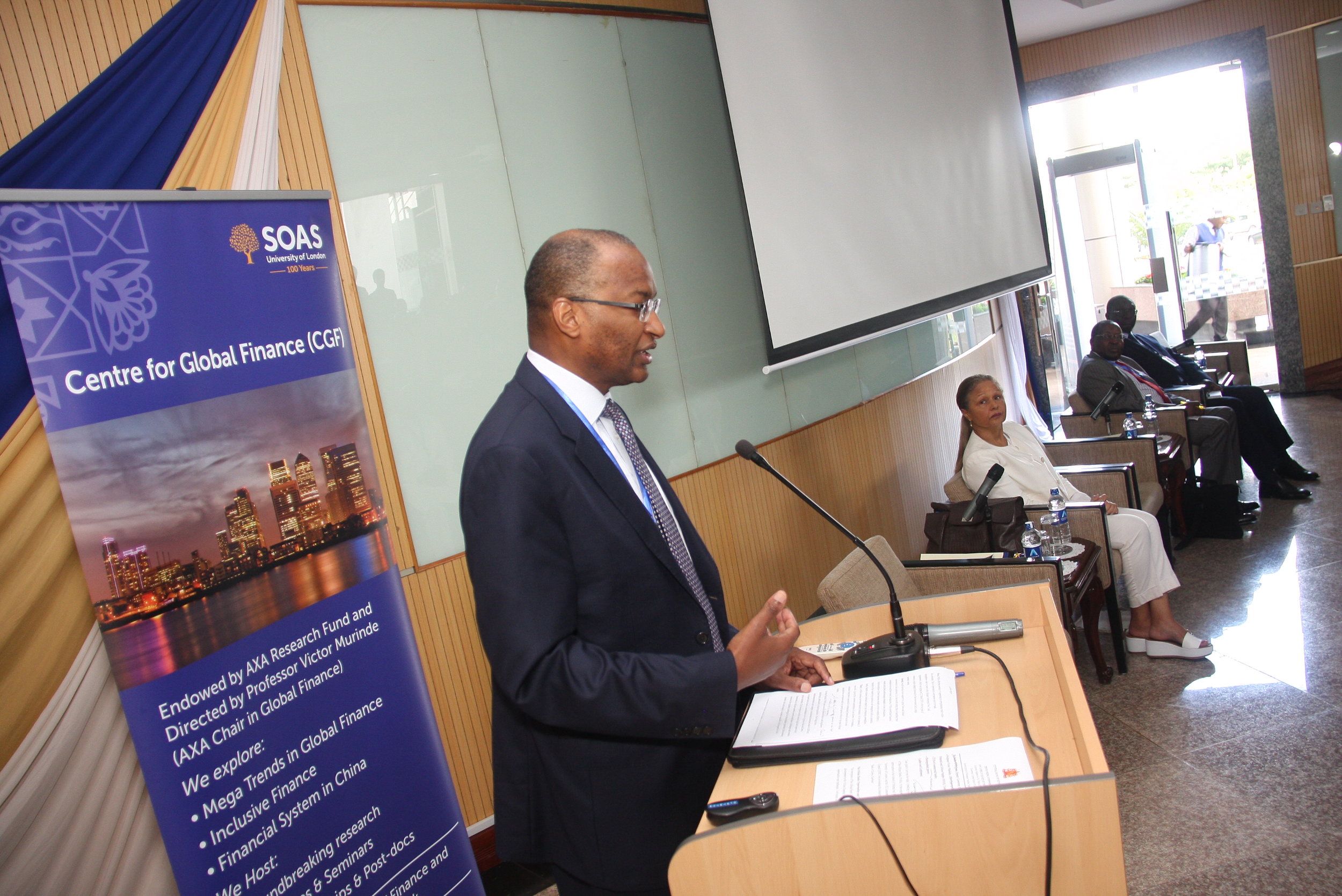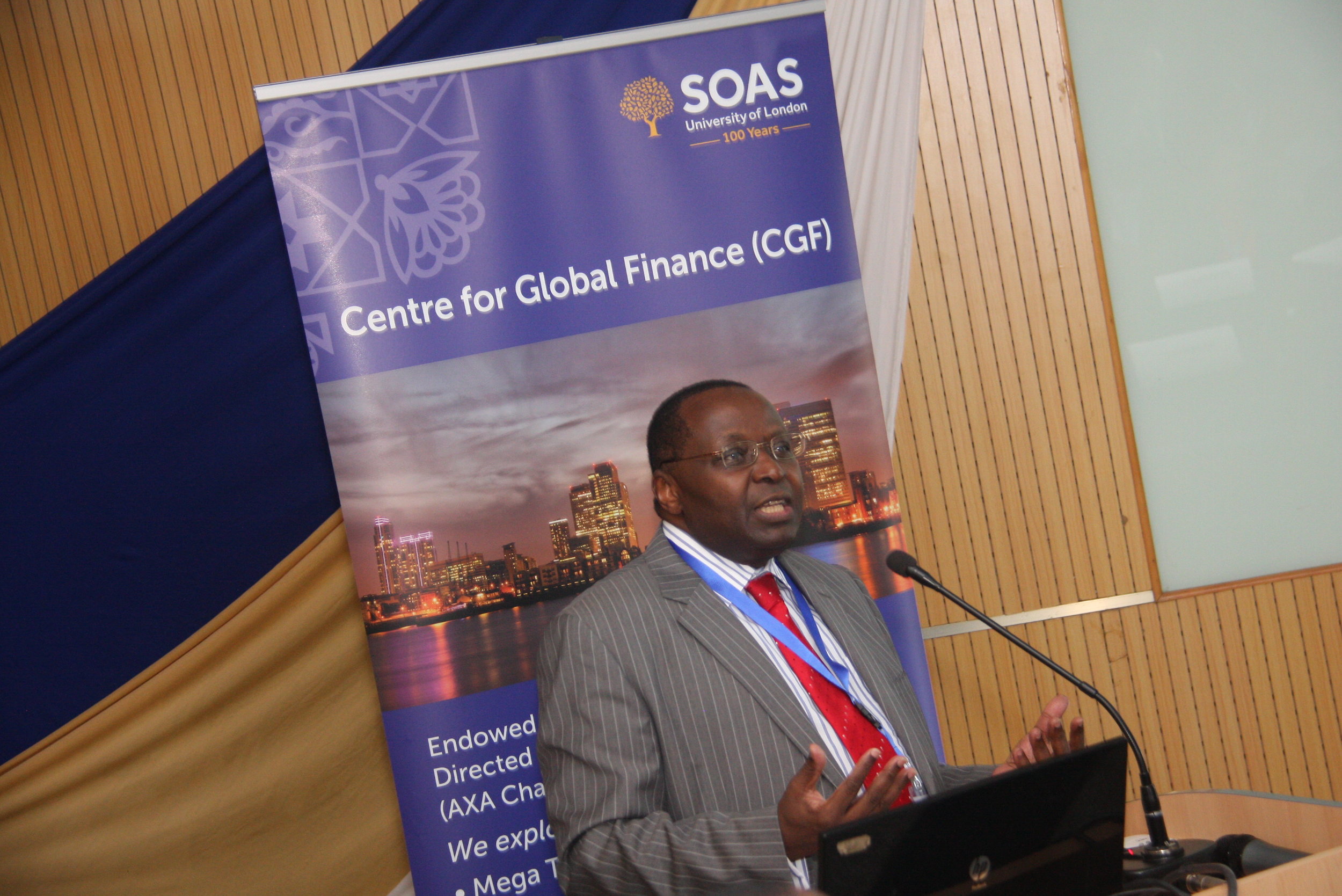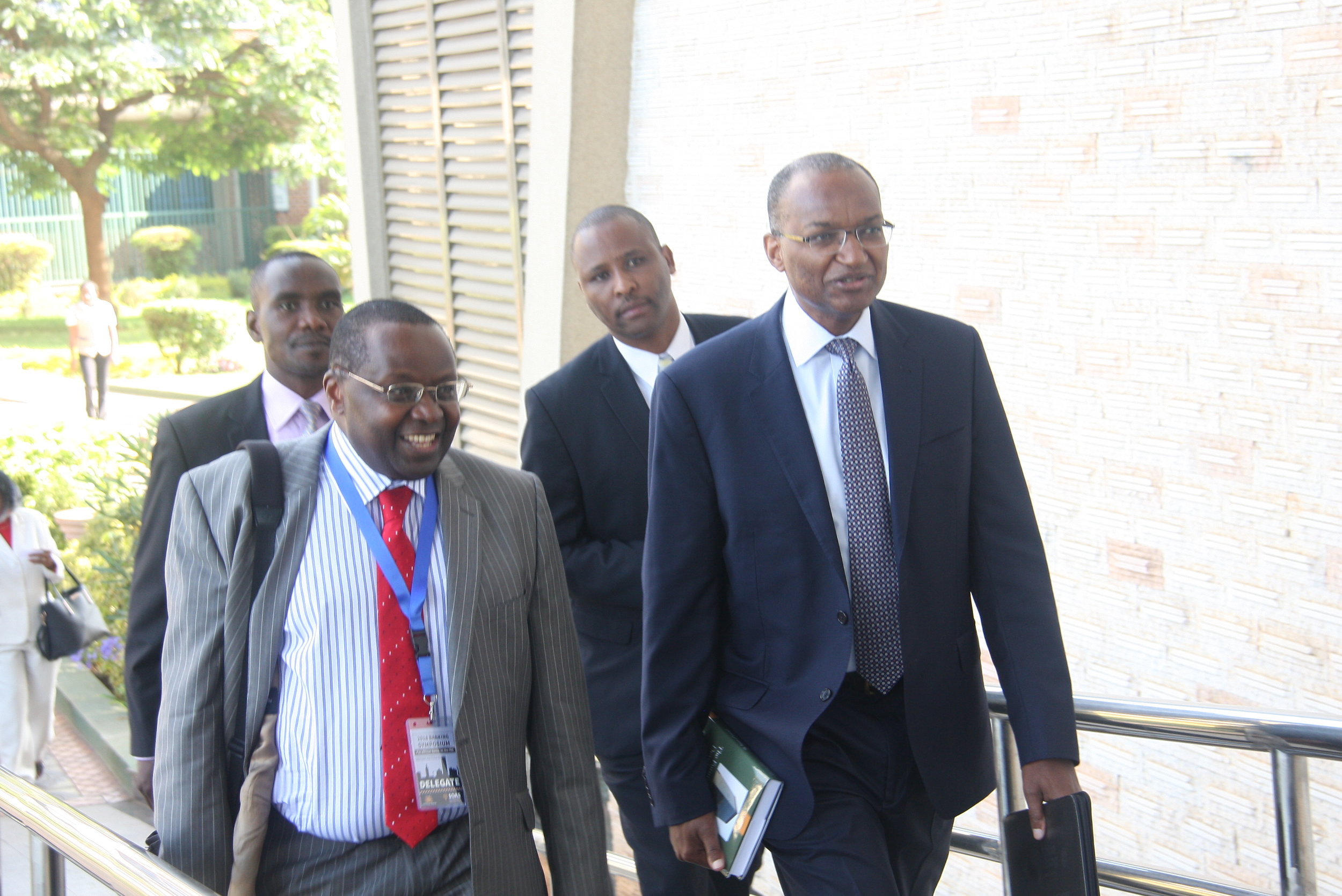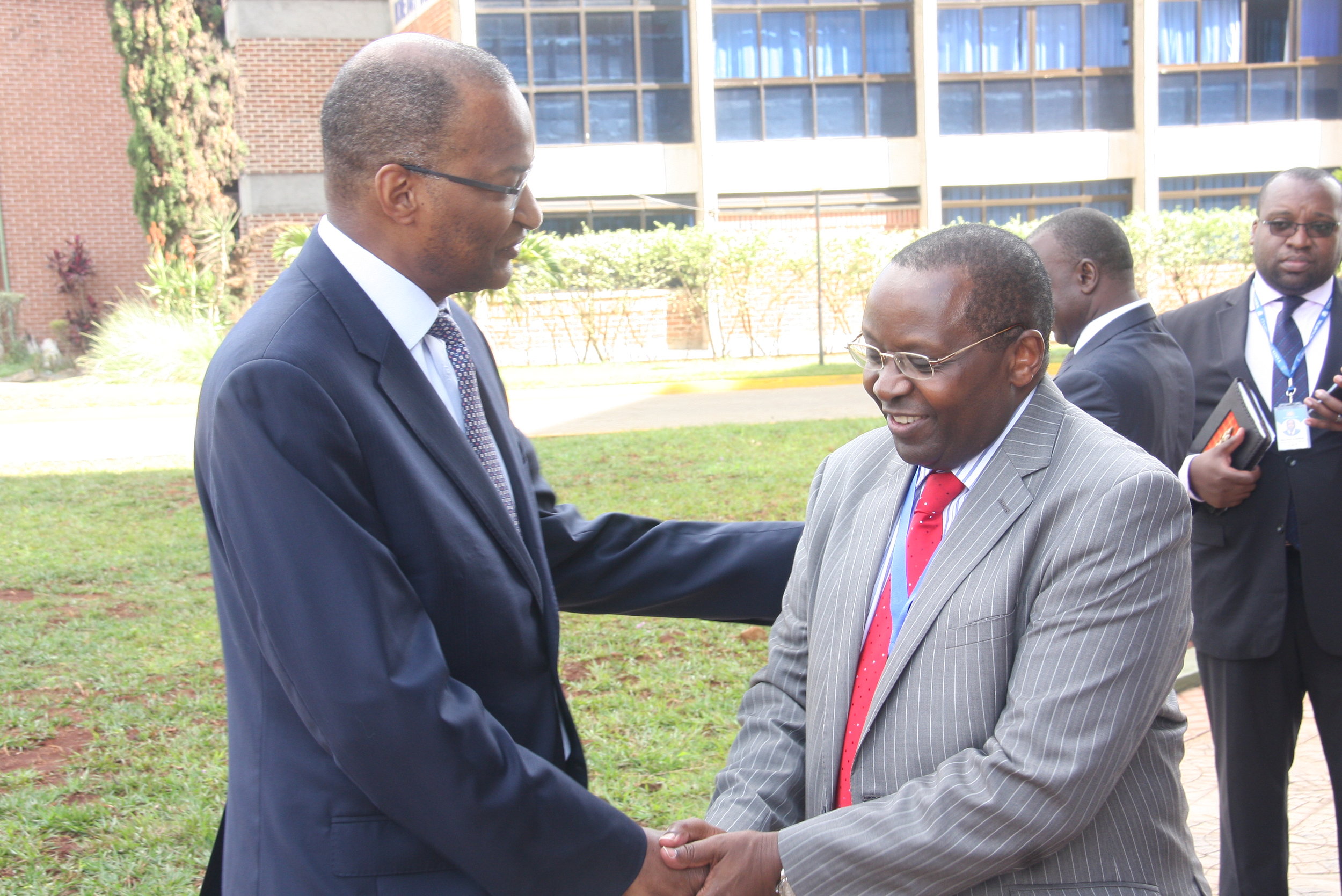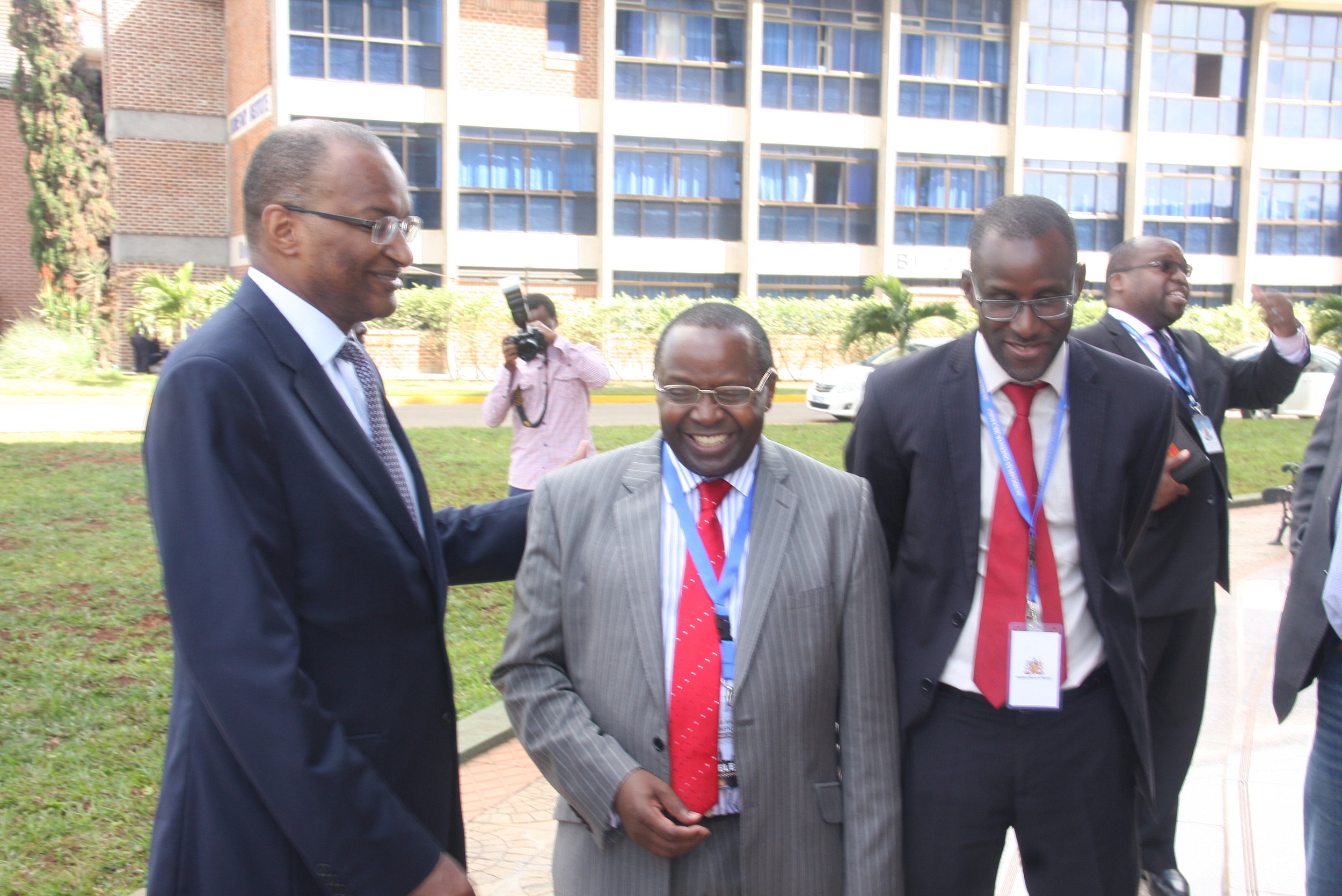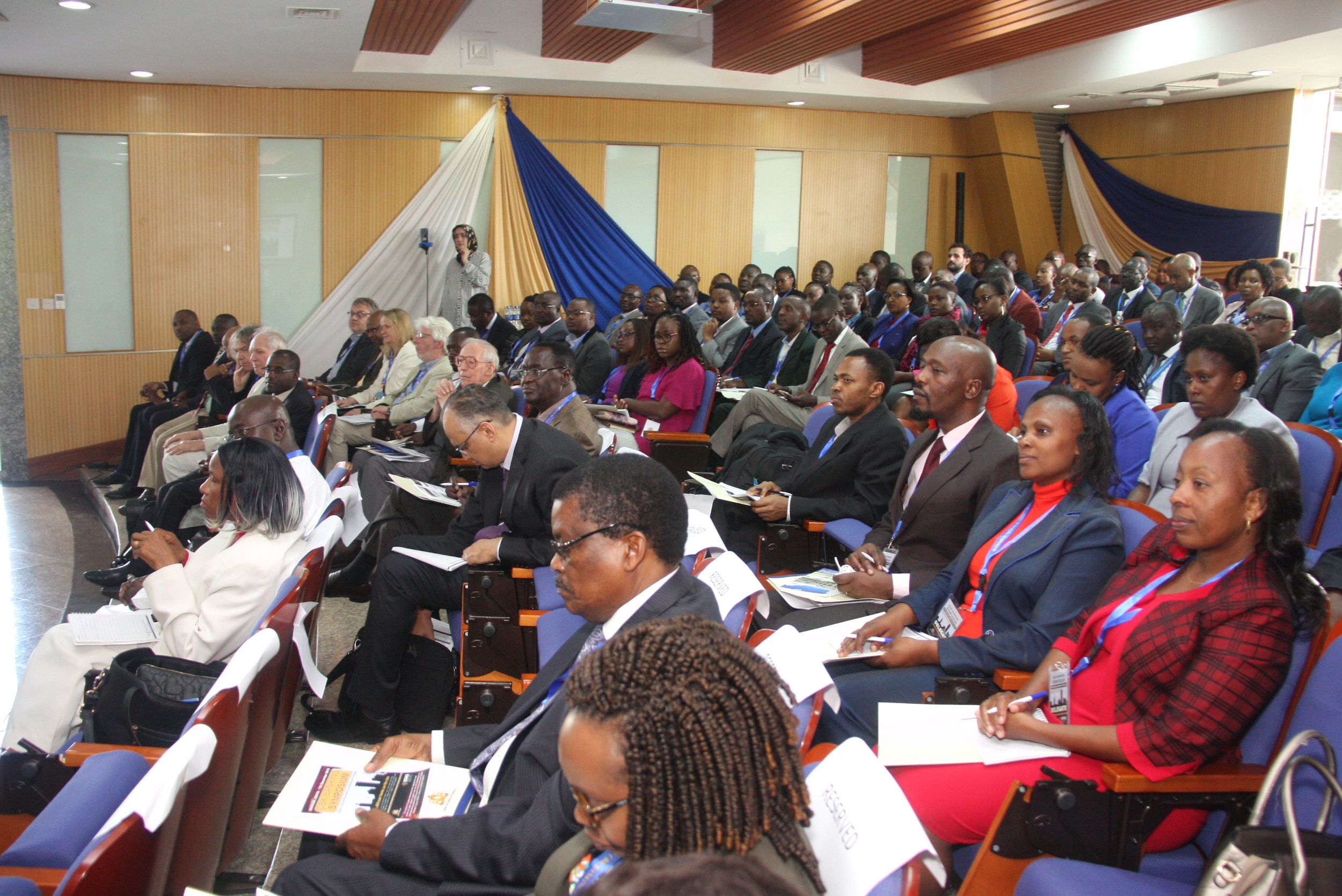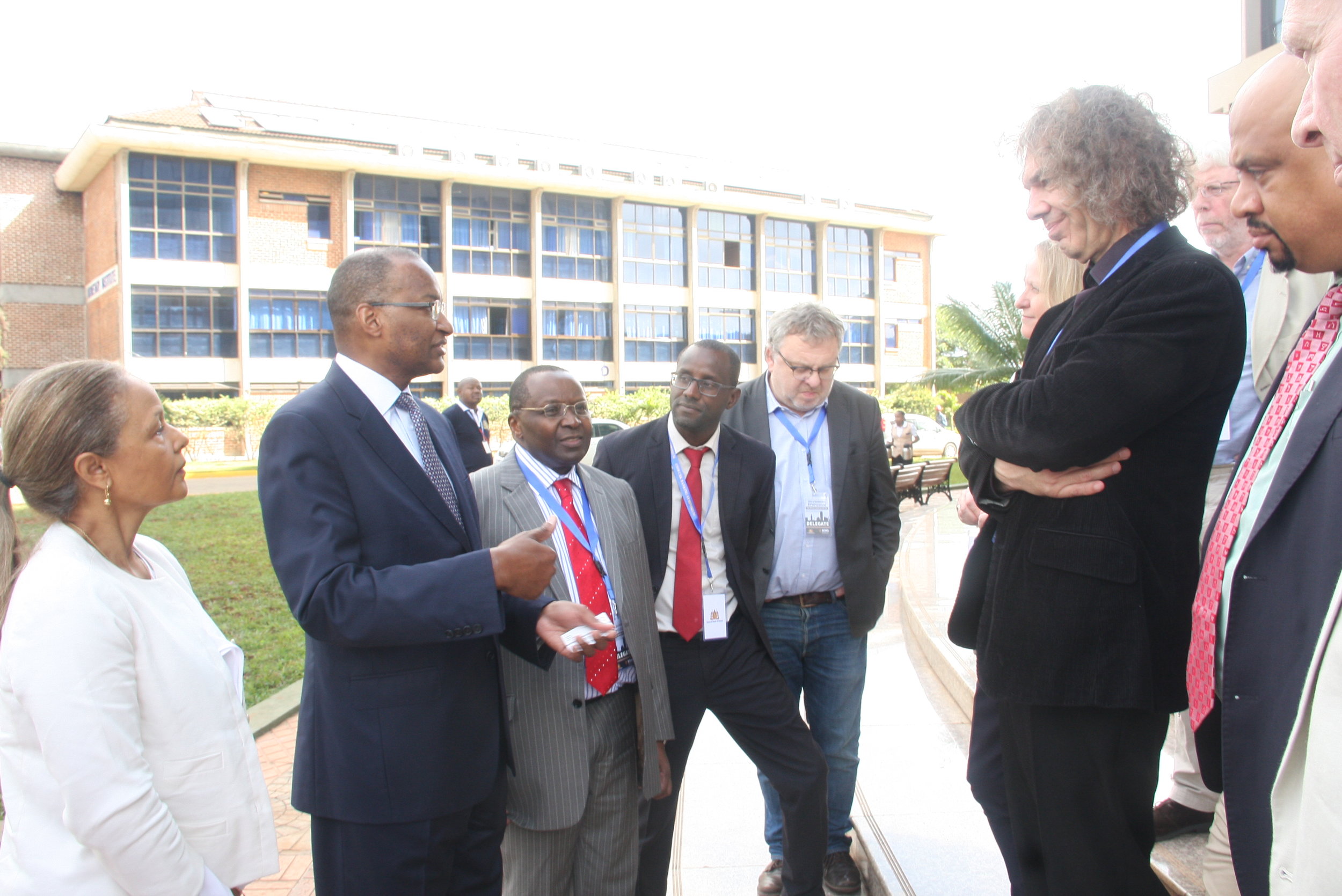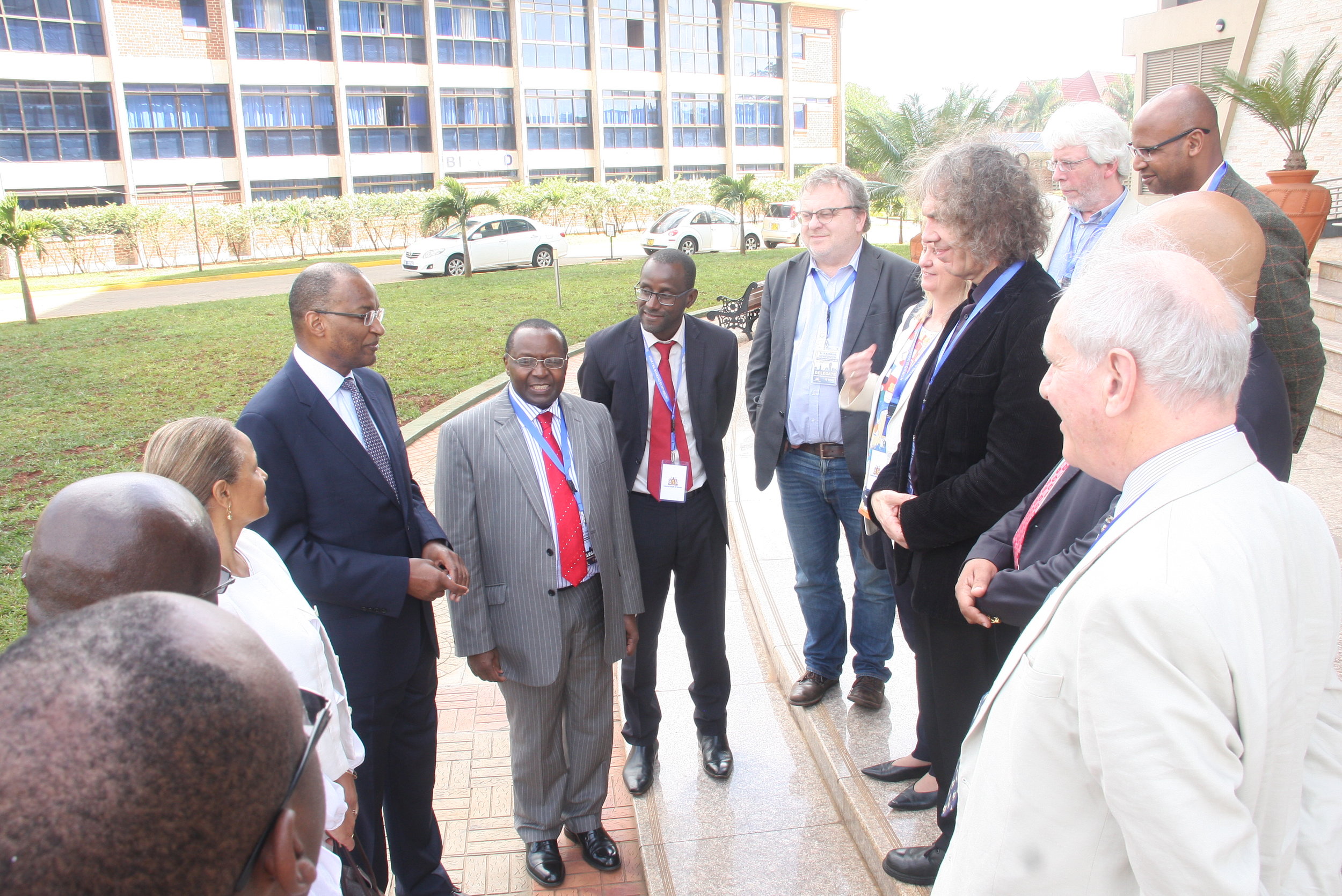The Institute of Certified Investment and Financial Analysts (ICIFA) held its 2nd Annual Conference in March 27th-29th, 2019 at Mombasa, Kenya, under the theme ‘Promoting a High Savings and Investment Culture in Kenya and the Region’. The conference brought together professional investment and financial analysts serving the financial services industry, which gave the participants a great opportunity to network with key stakeholders and experts in the financial markets from the region. The focus area for the conference was primarily to address the role of the investment professional in boosting the investment culture in Kenya as a key to economic growth.
Professor Murinde presented a keynote speech on the topic ‘The Role of Savings and Investments in Promoting Economic Growth’. The presentation outlined the global trends in savings, investment, equity and bonds, and particularly shed light on the trends of savings, investment and economic growth in Africa. Professor Murinde highlighted the main barriers of doing business in Africa and recommended directions of boosting investment and economic growth respectively.
Professor Murinde pointed out that ‘investment influences the rate of economic growth because it is a component of aggregate demand and influences the productive capacity of the economy. Investment in capital goods (e.g. factories, machines), human capital (e.g. education) and financial capital (e.g. funds necessary to sustain and grow a business) are fundamental elements to be considered.’
Professor Murinde also used evidence gathered from field experiments (RCT) to explain the importance of tackling main constrains imposed upon investment, which include ‘low level of social capital and trust in financial institutions, regulatory barriers, barriers to opening account, and lack of financial literacy’.
‘Innovative financial products are critical for the future of the financial services industry.’ said Professor Murinde.
Here are the five ‘take-away’ points: ‘Saving for financing investment is critical for economic growth; investment analysts and financial analysts here at ICIFA play an important role in reducing opacity in investments decisions; flow of funds framework is an effective tool for identifying where to invest and what to invest; strategies for promoting domestic investment should not be limited to stimulating domestic savings but must also address the non-financial obstacles; fintech is the way forward to provide innovative finance solutions for SMEs and start-ups (entrepreneurship) well beyond the first three years of life – the notorious ‘Valley of Death’, concluded Professor Murinde.











